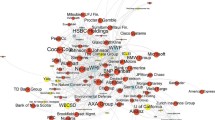Abstract
This paper is a study of an emerging environmental decision-making model that attempts to move beyond traditionally adversarial approaches toward “consensus building.” Consensus-based decision making ostensibly allows activists equal power with industrialists and state actors in environmental policy-making. This research builds upon the growing literature on frame-analysis by demonstrating that there are instances when challengers actually engage in collaborative framing with their adversaries. This does not presume that activists reject oppositional framing altogether. In these cases, environmentalists actually draw on a mixture of confrontation and negotiation in this innovative form of collective action that positions them in contexts most environmentalists never experience—a place at the decision-making table with elites. This study reveals that environmentalists are becoming more sophisticated in their efforts to protect local communities and natural resources.
Similar content being viewed by others
REFERENCES
Adair, Stephen 1996 “Overcoming a collective action frame in the remaking of an antinuclear opposition.” Sociological Forum 11:347–375.
Albrecht, Stan 1995 “Equity and justice in environmental decision-making.” Society and Natural Resources 8:67–72.
Aspen Institute 1996 The Alternative Path: A Cleaner, Cheaper Way to Protect and Enhance the Environment. Washington, DC: Aspen Institute.
Benford, Robert 1993a “Frame disputes within the nuclear disarmament movement.” Social Forces 71:677–701.
1993b “'You could be the hundredth monkey': collective action frames and vocabularies of motive within the nuclear disarmament movement.” Sociological Quarterly 34:195–216.
Best, Joel 1987 “Rhetoric in claims-making: Constructing the missing children problem.” Social Problems 34:101–121.
Bluestone, Barry and Irving Bluestone 1992 Negotiating the Future. New York: Harper Collins.
Briggs, Beatrice and Shari Leyshon 1996 “Consensus: The way healthy communities make decisions.” Conscious Choice (January/February): 52–53.
Brown, Phil and Edwin Mikkelsen 1990 No Safe Place. Berkeley: University of California Press.
Bryant, Bunyan 1995 Environmental Justice: Issues, Policies, and Solutions. Island Press: Washington, DC.
Bullard, Robert 1990 Dumping in Dixie. Boulder, Co: Westview Press.
Bullard, Robert, ed. 1993 Confronting Environmental Racism. Boston: South End Press.
Bullard, Robert and Glenn Johnson, eds. 1997 Just Transportation. Philadelphia, PA: New Society Publishers.
Capek, Stella 1993 “The 'environmental justice' frame: A conceptual discussion and an application.” Social Problems 40:5–24.
Collins, Patricia Hill 1993 Black Feminist Thought. New York: Routledge.
Consensus Organizing Institute 1994 Concept and Background Paper. Boston, MA.
Ellingson, Stephen 1996 “Understanding the dialectic of discourse and collective action: Public debate and rioting in antebellum Cincinnati.” In Doug McAdam and David Snow (eds.), Social Movements: Readings on Their Emergence, Mobilization, and Dynamics: 268–280 Los Angeles: Roxbury.
Freudenberg, Nicholas 1984 Not in Our Backyards. New York: Monthly Review Press.
Gamson, William 1992 “The social psychology of collective action.” In Aldon Morris and Carol Mueller (eds.), Frontiers in Social Movement Theory: 53–76. New Haven, CT: Yale University Press.
1975 The Strategy of Social Protest. Homewood, II: Dorsey.
Gamson, William, Bruce Fireman, and Steven Rytina 1982 Encounters with Unjust Authority. Homewood, II: Dorsey Press.
Goffman, Erving 1974 Frame Analysis. Cambridge, MA: Harvard University Press.
Gould, Kenneth, Allan Schnaiberg, and Adam Weinberg 1996 Local Environmental Struggles. New York: Cambridge University Press.
1993 “Legitimating impotence: Pyrrhic victories of the modern environmental movement.” Qualitative Sociology 16:207–246.
Hofrichter, Richard 1993 Toxic Struggles. Philadelphia, PA: New Society Publishers.
Kitschelt, Herbert 1986 “Political opportunity structures and political protest: Anti-nuclear movements in four democracies.” British Journal of Political Science 16:57–85.
Klandermans, Bert 1984 “Mobilization and participation: Social-psychological expansions of resource mobilization theory.” American Sociological Review 49:583–600.
Lee, Charles 1987 Toxic Wastes and Race in the United States. New York: United Church of Christ Commission for Racial Justice.
Logan, John and Harvey Molotch 1987 Urban Fortunes: The Political Economy of Place. Berkeley: University of California Press.
Lukes, Steven 1974 Power: A Radical View. London: Macmillan.
McAdam, Doug 1996 “The framing function of movement tactics: Strategic dramaturgy in the American civil rights movement.” In Doug McAdam, John McCarthy, and Mayer Zald (eds.), Comparative Perspectives on Social Movements: 338–355. Cambridge, MA: Cambridge University Press.
1983 “Tactical innovation and the pace of insurgency.” American Sociological Review 48:735–754.
March, James 1987 “Theories of choice and making decisions.” In F. Cox, J. Erlich, J. Rothman, and J. Tropman (eds.), Strategies of Community Organization: 279–297. Itasca, II: F. E. Peacock Publishers.
Morris, Aldon 1992 “Political consciousness and collective action.” In Aldon Morris and Carol Mueller (eds.), Frontiers in Social Movement Theory: 351–373. New Haven, CT: Yale University Press.
New National Opportunities Task Force 1997 Lessons Learned from Collaborative Approaches. Washington, DC.
Noonan, Rita 1996 “Women against the state: Political opportunities and collective action frames in Chile's transition to democracy.” In Doug McAdam and David Snow (eds.), Social Movements: Readings on Their Emergence, Mobilization, and Dynamics: 252–267. Los Angeles: Roxbury.
Park, Lisa Sun-Hee 1997 “Navigating the anti-immigrant wave.” In Nancy Naples (ed.), Community Activism and Feminist Politics: 175–195. New York: Routledge.
Perrolle, Judith 1993 “The emerging dialogue on environmental justice.” Social Problems 40:1–4
Snow, David and Robert Benford 1992 “Master frames and cycles of protest.” In Aldon Morris and Carol Mueller (eds.), Frontiers in Social Movement Theory: 133–155. New Haven, CT: Yale University.
1988 “Ideology, frame resonance, and participant mobilization.” International Social Movement Research 1:197–217.
Snow, David, E. Burke Rochford, Jr., Steven K. Worden, and Robert Benford 1986 “Frame alignment processes, micro-mobilization, and movement participation.” American Sociological Review 551:464–481.
Stoecker, Randy 1995 “Community, movement, organization: The problem of identity convergence in collective action.” Sociological Quarterly 36:1–130.
Szasz, Andrew 1994 EcoPopulism. Minneapolis: University of Minnesota Press.
Tarrow, Sidney 1983 Struggling to Reform: Social Movements and Policy Change During Cycles of Protest. Ithaca, NY: Cornell University.
Author information
Authors and Affiliations
Rights and permissions
About this article
Cite this article
Pellow, D.N. Framing Emerging Environmental Movement Tactics: Mobilizing Consensus, Demobilizing Conflict. Sociological Forum 14, 659–683 (1999). https://doi.org/10.1023/A:1021604104463
Issue Date:
DOI: https://doi.org/10.1023/A:1021604104463




